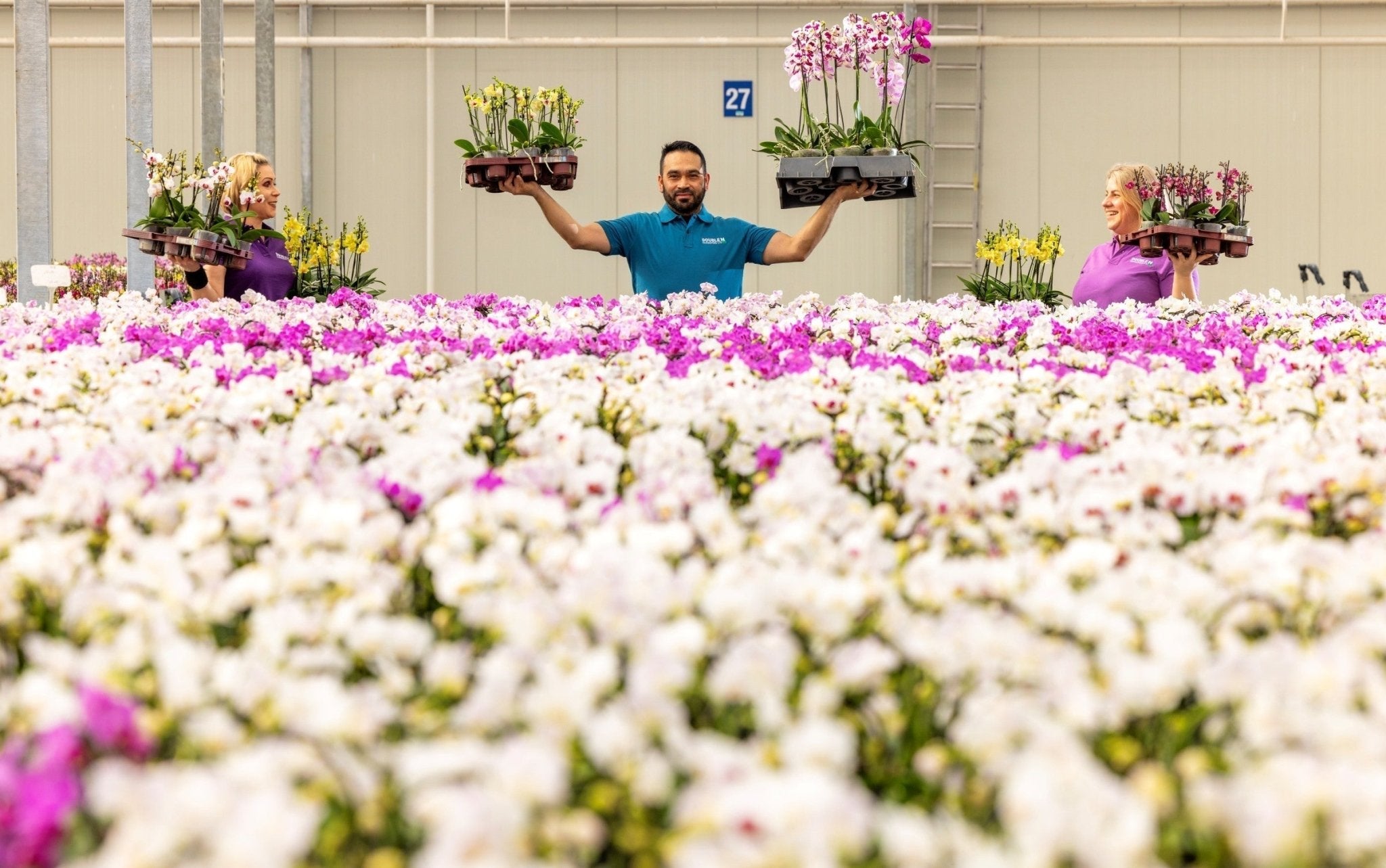6 Tips for Growing an Orchid Garden

Growing an orchid garden can be a rewarding and fulfilling experience.
Orchids, often regarded as the epitome of grace and beauty, are renowned for their stunning and long-lasting blooms that can infuse an irresistible touch of elegance into any home or greenhouse.
Choose the Right Orchid
To embark on your orchid plant care journey, the first and perhaps most critical step is the careful selection of the right orchid species for your orchid garden.
Orchids, with their staggering diversity, present a captivating array of options for the enthusiastic grower. Each species, from the exotic Phalaenopsis to the regal Cattleya and the enchanting Dendrobium, possesses its own unique set of requirements, encompassing everything from the amount of light they need to the ideal temperature and humidity levels they thrive in.
However, before you bring an orchid home to grace your orchid garden, it's crucial to delve into the specifics of the species you have your heart set on. Delicate and temperamental, orchids are responsive to the environment in which they're placed.
To ensure your chosen orchid thrives in your care and contributes to the natural beauty of your orchid garden, comprehensive research is a necessity.
Feel free to contact us for any questions you may have.
Provide the Optimal Environment
Creating a suitable environment for your orchids is paramount to their well-being and successful orchid plant care.
As a general guideline, it's wise to avoid exposing your orchids to direct sunlight. Orchids are quite sensitive and can easily suffer from sunburn. To ensure the well-being of your plants, it's best to position them in an area where they receive sunlight primarily during the morning or afternoon.
Orchids have their origins in the lush, tropical regions of Asia, where they thrive in high humidity rather than arid conditions.
So, if you need to enhance the humidity level for your orchids, consider situating the pot on a bed of moist gravel, ensuring that the water level remains beneath the surface of the stones.
However, if you do decide to do this, refrain from using a water mister, as it may result in unsightly spots on the flowers and undesirable deposits on the leaves. This is especially important because many water sources contain 'hard' water with limescale, which can adversely affect the orchids.
Keep in mind that some orchid species exhibit greater resilience to cooler temperatures compared to others due to their specific temperature tolerances. It's crucial to monitor and ensure that no orchid is exposed to temperatures lower than 50°F to safeguard their health and vitality.
Use the Right Soil
Orchids have unique soil requirements, a significant part of orchid plant care.
They need a well-draining mix that allows air to circulate around their roots. Specialised orchid potting mixes are readily available at most garden centres and nurseries, ensuring the success of your orchid garden.
Frequently, the orchids you encounter are of the epiphytic variety, signifying that they are air plants naturally thriving on rocks and trees in their native habitats. These plants primarily derive their moisture and nutrients from the surrounding air rather than relying on traditional soil.
Epiphytic orchids should never find themselves nestled in the conventional potting mix typically used for houseplants.
Instead, they require a specialised blend crafted from bark, perlite, and sphagnum moss. This unique mixture serves the essential purpose of ensuring that your orchids enjoy the necessary airflow among their root systems.
If you're seeking orchid potting mix tailored to these exacting needs, take a look here.
Water Properly
Orchids demand a specific approach to watering, another vital aspect of orchid plant care. They should be watered thoroughly, but infrequently.
Allowing the soil to dry out slightly between waterings is essential to prevent root rot, a common problem in overwatered orchids, and it's part of proper orchid plant care.
Strike a balance by paying close attention to your orchids' moisture needs, as this can vary depending on the orchid species and the environment, they are in. It's a critical component of growing orchids.
Fertilize Regularly
Regular fertilization is key to providing your orchids with the necessary nutrients they need to flourish, integral to orchid plant care.
Utilise specialised orchid fertilizers available at garden centres, and make sure to follow the instructions carefully to ensure you are offering your plants the best chance for growth and vibrant blooms.
Be Patient
Finally, remember that patience is a virtue when it comes to cultivating orchids and tending to your orchid garden.
These exquisite plants can take several years to mature and produce their beautiful blossoms, so embrace the journey and take joy in the process of caring for your orchids.
With time and dedication, your orchid garden will be a testament to your green thumb and a source of natural elegance for your home or greenhouse.



